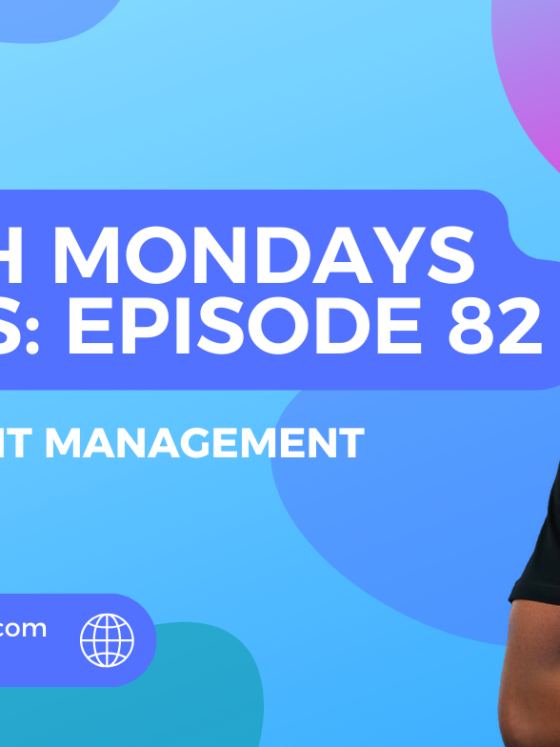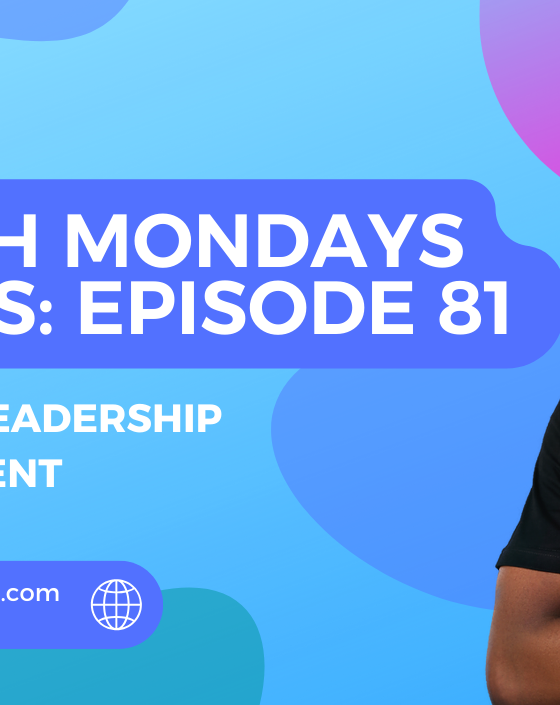Purpose-Driven Profitability — Balancing Social Impact and Business Growth
North Mondays Series: Episode 113

Can You Make Money and Still Make a Difference?
It’s a question that lingers during strategy meetings, behind the eyes of founders, and even in the moments when profit meets conscience. Purpose-driven profitability.
Can you really run a business that’s both profitable and principled?
It’s easy to say yes on paper but it’s harder to do when the bills are due, the margins are thin, and you’re just trying to get by without cutting corners. Today’s customers are watching and they care. Not just about what you sell, but what you stand for.
- Employees want mission, not just money.
- Investors want ESG (Environmental, Social, Governance) metrics, not just market share.
- Communities want to feel seen, not just sold to.
The pressure is rising and the question remains: Can you do both? And do it well?
.
The Challenge: Integrating ESG Without Losing Focus.
Let’s be honest…
If you’re running a small or medium-sized business in Africa, you’re not waking up thinking about carbon footprints. You’re thinking about cash flow, payroll, logistics, and how to keep your business from collapsing under pressure.
Yet somewhere between market realities and moral responsibility, there’s a middle ground.
You see, this thing called purpose-driven profitability is becoming the new business edge. It’s real strategy, where doing good actually boosts your bottom line.
Purpose-Driven Profitability
It’s no longer either-or; purpose is the new competitive advantage.
The smartest companies are embedding purpose into their core strategy.
They’re aligning values with business models.
It shows up in how they hire, where they source, how they build community, and how they talk about themselves.
This is purpose-driven profitability where doing good actually helps you do well.
Why? Because:
- Talented people want to work where their work matters.
- Customers want to buy from brands that reflect their values.
- Investors want to bet on businesses that will still be standing in 10 years and doing good while at it.
What Purpose-Driven Companies Actually Do
They don’t try to solve the world’s problems in one campaign. They start small but start right:
- Beyond money, what gap are you filling? why are you here?
- Choose one or two impact areas that align deeply with your business.
- They embed it into operations: from who they hire to how they price, to where they source materials.
- Track outcomes: What impact are you making and how does it connect to profit?
- Tell the story: Share your why and show your work. People don’t believe what they can’t see.
Examples OF Purpose-Driven Companies
- Patagonia: Environmental impact drives product design and customer loyalty
- Thrive Agric: Connects small farmers to finance and supply chains
- Tony’s Chocolonely: Built an anti-slavery chocolate brand that drives profit by purpose
- Loomia: Makes ethical tech-based textiles and built trust into its customer value
You don’t need to be a billion-dollar company to do this. Start with clarity, courage, and commitment.
North Mondays Action Plan
If you’re building a business right now, here’s a roadmap that won’t overwhelm you but will move you forward:
- Define your “why” in one clear sentence.
- Choose one impact area: the environment, your workers, your community.
- Add one impact metric to your dashboard: Not just revenue, but maybe waste reduced, or scholarships given.
- Check your partners: Do your suppliers and collaborators share your values?
- Communicate it on your website, in your pitch decks, in interviews.
- Celebrate small wins.
Because the truth is; purpose pays.
Don’t Just Do Good—Do Good Business
We’re entering an era where capitalism has to grow a conscience.
Where “doing good” is no longer separate from “doing business.”
Where impact and income dance together—not as enemies, but as partners.
So the next time you find yourself wondering:
“Should I focus on making money or making a difference?”
Remember: You don’t have to choose.
Your Turn
- What impact goal matters most to your business right now?
- What’s one thing you could change this quarter to better align with it?
·
North Mondays helps you build smart, lead with intention, and win with meaning.
Because profit isn’t the enemy of purpose it’s the fuel and Africa needs more businesses that do both.








Recent Comments